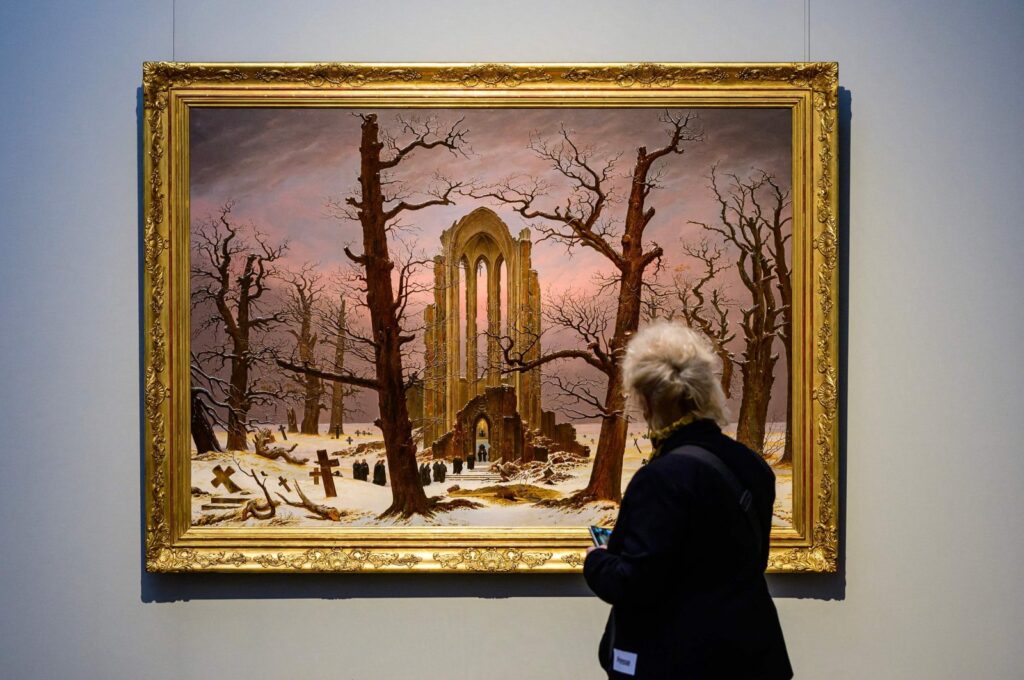
Kai Weiss
Classical liberalism has recently found itself on the losing end of political debates. Over the last few decades, the tradition of the old liberals has increasingly been left in the cold. With the rise of woke ‘cancel’ culture, and the COVID tyranny of the last two years, classical liberals have grave concerns. Freedom is faltering in today’s world.
Peter Boettke’s The Struggle for a Better World tries to change that, making the argument for classical liberalism in a world that is zealous for its opposite. Published in February 2021 amid the height of COVID mania, it is a collection of Boettke’s essays, papers, and speeches over the last twenty years. The book encompasses readings with a broad scope, treating economics, politics, philosophy, culture, and the social sciences overall. Despite this, the book reads like a single work, and can be considered the go-to guide on classical liberalism in the 21st century. It explains what classical liberalism means, predicts where the tradition may be headed, and considers the strengths and weaknesses of this school of thought.
Boettke, who is an economics professor at George Mason University and the director of the F.A. Hayek Program at the university’s Mercatus Center, argues that we have seen a “rise of leviathan,” with growing levels of government interventionism in the last decades. The culprits for Boettke are scientism, modeling and aggregation in the social sciences, and statism paired with interventionist economic traditions. The solution is a defense of methodological individualism, laissez-faire capitalism, and limited government. Most especially, more humility is needed in the social sciences.
The Hubris of the Economists
It is on this last point that the book makes the greatest mark and most substantial contribution. Several chapters are dedicated to the role of the economist (and social scientist at large), and it is clear: Boettke sees rampant hubris in the economists of our day. This is particularly troubling, considering that economics ought to teach us humility. Economics teaches us that we live in an imperfect world, and that policymaking has a limited scope, because there are limits to what a given social scientist or politician can know and understand.
Humility, prudence, and realism are essential for the economic profession.
Boettke argues for a return to a more serious form of political economy. Political economists of old used theory “to address practical problems of public policy; thus the discipline was perceived as a guide to statesmen.” Edmund Burke told us that prudence is the “god of the lower world” for the statesman, and Boettke believes it ought to be so for the economist, too, who knows how complex the world is, and how little he himself is able to analyze or even control it.
More precisely, the tradition of political economy to which Boettke wants us to return is that of Adam Smith, David Hume, Friedrich Hayek, and James Buchanan. Instead of making definitive policy recommendations based on unrealistic models and calculations, the economist should be cautious and a student of society—or, in Boettke’s words, he should refrain from being a “jibbering idiot.” For a return to political economy, it might be necessary “that economists be knocked off their pedestal as saviors and high priests of the modern order, and restricted once more to our status as students of civilization, and the lowly philosophers of social order.” Humility, prudence, and realism are essential for the economic profession.
Market Romanticism
Boettke does a commendable job in following this political-economic tradition. Nonetheless, his economic background often shines through in a somewhat unfortunate way. For him, the economic order at times takes on an almost sacred meaning. No one, says Boettke, “has access to the truth from the Almighty” (religiously faithful readers will disagree), but at the same time, “trade is the vehicle of our deliverance” and the “human propensity to truck, barter, and exchange is the source of our salvation.” At least Boettke does not talk about eternal salvation, but only of our salvation from “poverty, ignorance, and squalor.” But that raises the question: is escaping poverty, ignorance, and squalor all we can hope for?
Boettke’s market romanticism may go too far, giving markets a status they do not clearly deserve. The only reason why people interact with one another at all, according to Boettke, is a “marginal benefit/marginal cost calculus” on the part of the individual. If social interactions wouldn’t lead to material improvement through “truck, barter, and exchange,” humanity would enter a Hobbesian world of war. The individual, then, comes across as basically economic, not inherently social or “made for the city,” for the polis.
Markets, on this view, are the primary source of harmony within human society. Boettke follows here in the Voltairian fantasy that everyone, Jews, Gentiles, or Muslims, might finally stop warring and start peacefully interacting through the market. The notion that we should treat others with love is, of course, not an invention of the market, but is also known as “charity,” as in Jesus’ command to “love thy neighbor.” The assumption that everyone would stop worrying about spiritual or cultural issues which divide us, if only we were all engaging in the global market economy, seems flawed. It can only be true if one assumes that God, family, honor, ideology, or country will never have priority in a human’s life.
Quite correctly, Boettke is astonished by those arguing for more government on both the left and the right. Their shared critique is that the government is failing: “Yet precisely because it is failing, it must grow in scale and scope to address the failure.”
None of these points are necessary for Boettke’s case. He powerfully defends markets and their institutions for the material prosperity and individual freedom they provide, and for the coordinating function they fulfill. He argues for the importance of the free price system and free entrepreneurship, and attacks the presumption that anytime a problem arises, the government needs to solve it: “Government must simply be called on to do less, individuals and their communities called on to do more.”
Opponents of markets often accuse the market of failing. But Boettke shows clearly how the supposed instances of “market failure” are most often cases of government interfering with the market inordinately. Our view on the possibilities of what government can do “will need to adjust.” Our lives will always be impacted by economic realities that are not within our power to change. Neither good intentions nor the ballot box can erase these fundamental truths.
When government takes on more tasks, there is less room for private citizens, communities, and civil society to take charge. Boettke, thus, follows Tocqueville and Nisbet in warning of oppressive government which would eliminate the life of free associations, leaving the individual without protection from the state. Quite correctly, Boettke is astonished by those arguing for more government on both the left and the right. Their shared critique is that the government is failing: “Yet precisely because it is failing, it must grow in scale and scope to address the failure.”
The Limits of Liberal Cosmopolitanism
Boettke rightly critiques the ideas of Big Government and advocates for the market system. However, there are problems with his defense of liberalism as such which need to be respectfully addressed and critiqued, since they show a problem of many strands of classical liberal and libertarian thought.
Liberalism (in the classical way) is for Boettke fundamentally grounded in the maxim that “all men are created equal,” and that no one can own another or tell him what to do. From this fundamental truth, Boettke argues, arises the need to honor the human dignity of others. So far, so good.
However, Boettke develops from this his case for a “liberal cosmopolitanism,” which “espouses virtues of openness, of acceptance, of above all else toleration.” As he fleshes out what that means, it sounds alarmingly close to the “liberalism” that can be heard in political legislatures, college campuses, and pop culture. Boettke’s liberalism is inherently “emancipatory.” The classical liberal ideal world is “a system absent of all privileges,” and presumes an agreement in society that whatever an individual believes, and regardless of the “lifestyle choices” he follows, others will tolerate it. Everyone, one might say, defines his own freedom.
As we see in the West today, this kind of thinking can give rise to a ferocious hostility against tradition, and even history itself. There is no point in looking back at history: “There is no ‘great’ to go back to; there is only a ‘great’ to move forward to as a truly humane liberal democratic project is refined and perfected.” Indeed, history needs to be, at least to a certain extent, forgotten: “Liberalism must be offered as a promise to future generations to eradicate the shameful sins of the past.”
Will this line of thinking really preserve the freedom and prosperity that Boettke wants? We see in our culture today that the insatiable demand for openness and toleration has led to sentiments that have become quite repressive and intolerant. Calls for liberation morph into attempts to kill any notion of objective truth and morality. We now live within a leveling movement that argues that some need to be actively put down, and others actively advantaged, to finally put everyone in the same spot.
It seems clear that our cosmopolitan societies are not simply tolerant of all lifestyle choices and sacred beliefs: they only accept those which are en vogue (and what is en vogue changes dramatically), while canceling those that are not. Any views that run contrary to this mainstream perspective need to make way, since they are inherently dangerous to the vulnerable ‘liberal’ consensus. Finally, disrespect for history has rather led to attempts to eliminate Western history. Who still needs to read the classics? Who still needs those Adam Smith statues and David Hume buildings, those Friedrich Hayek events, when those men were all just part of this disreputable heritage, and even tried to defend it?
Perhaps Boettke’s liberalism can adhere to firmer principles, and yet, reading the book, it is often unclear how his liberalism truly differs from that of the “woke” elite. Won’t his cosmopolitan liberalism naturally lead to the modern version? Surely any liberalism that decries any privilege or authority will easily lead to a Tocquevillian nightmare of excessive equality, where everyone would be equal, and thus equally weak against the omnipotent state. Men would become (or have become) a “flock of timid and industrious animals,” bowling alone haplessly while the state directs their lives.
To preserve classical liberalism, it would be crucial to put it on a stronger footing, with a different defense of freedom more aligned with the likes of Hayek, Burke, Tocqueville, Acton, and others. It could be one based on the ancients and the classics. It could be a liberalism rooted in human freedom and dignity, in virtue and morality, in family and community, in history and the very beginning of history—not the state of nature, but God—as well as the market economy and the marketplace of ideas.
Boettke exclaims that for Hayek, “the position of the economist as properly understood” was that of a “student of civilization.” But to be a student of civilization, classical liberalism needs to be grounded on a stronger foundation than tolerance and emancipation. The liberalism that Boettke defends is valuable for protecting both prosperity and freedom, but it needs to be rooted in a defense that appreciates the value of history, tradition, and virtue. Boettke is partly on the right track in building this defense. In the end, however, his classical liberalism misses crucial pieces that are essential for his project to succeed.
Courtesy: (Lawliberty)
The post Does Classical Liberalism Have a Future? appeared first on The Frontier Post.








